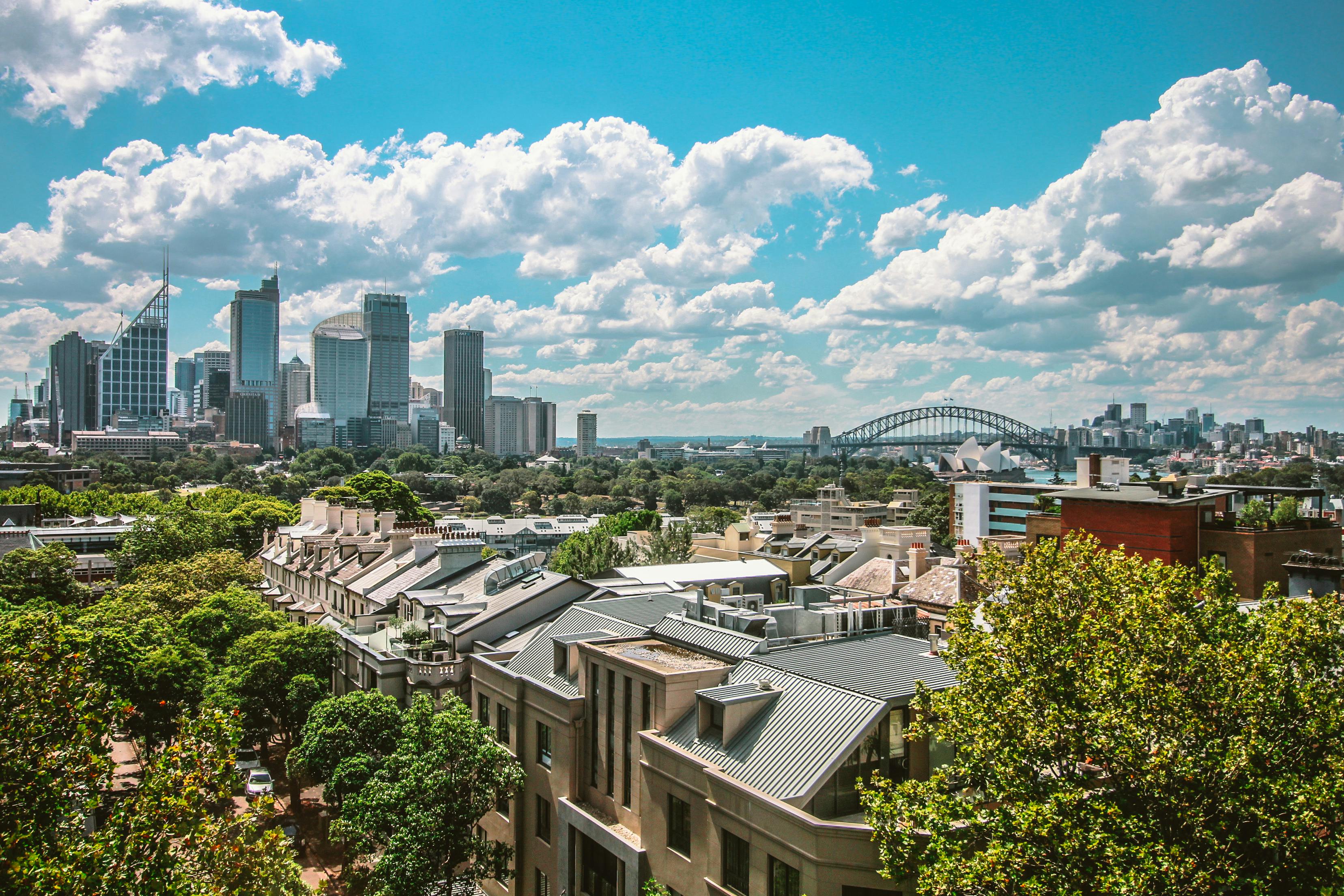Being a single parent can be challenging, as can buying your own home. Naturally, single parents wanting to buy their own home are likely to face some hurdles. But hurdles can be overcome.
As a parent on a single income, the dream of owning a home might seem like a distant fantasy. Kids are expensive, buying a house is expensive; you get the idea. But there are resources available to help single parents to buy their very own family home.
Home loans for single parents
While there are no home loans designed specifically for single parents, there are schemes to help single parents purchase their own property.
Specifically, the Family Home Guarantee Scheme was created to help single parents with dependents build or buy a home with a deposit as low as 2% without needing to pay lenders mortgage insurance (LMI). This could benefit single parents that struggle to save up a hefty 20% deposit in order to avoid paying LMI - a near impossible task for someone on a single income with children to look after.
This particular scheme is different to most other government schemes, which are more geared towards first home owners, as it is available to single parents that might have owned a property in the past.
Family Home Guarantee Scheme
From 1 July 2021 to 30 June 2025, 10,000 Family Home Guarantees are available for single parents with at least one dependent child. Under this scheme, buyers with a deposit as little as 2% will be able to secure a home loan without the requirement to pay LMI.
In most cases, people with a deposit less than 20% are required to pay LMI. LMI is an insurance policy that protects the lender, not the borrower, in the event the borrower is unable to repay their loan. Buyers with a deposit less than 20% are usually considered ‘risky’ borrowers, which is why they are required to pay LMI.
But under this scheme, participating lenders will be guaranteed by the National Housing Finance and Investment Corporation (NHFIC) for up to 18% of the home’s value. This means single parents using this scheme don’t need to pay LMI if they have at least a 2% deposit, which could save them thousands of dollars.
To be eligible under this scheme, you must:
-
Be a single person, i.e. a person that doesn’t have a spouse and/or de facto partner
-
Have at least one dependent child
-
Be an Australian citizen who is at least 18 years old
-
Intend on living in the property
-
Have an annual taxable income of $125,000 or less for the previous financial year (not including any child support)
The types of properties you could look at buying include:
-
An existing house, townhouse or apartment
-
A house and land package
-
Land and separate contract to build a house
-
An off-the-plan apartment or townhouse
Other assistance to help single parents purchase their first home
As well as the Family Home Guarantee Scheme, single parents could be eligible for the First Home Loan Deposit Scheme, the New Home Guarantee, or the First Home Super Saver Scheme. These were designed to assist people that are buying their first home.
These resources are specifically available for people buying their first home. On the other hand, the Family Home Guarantee Scheme can be used by both first home owners as well as people reentering the property market.
Most of the schemes and guarantees are offered by the Australian Government, but what this looks like for you might differ depending on which state or territory you’re looking to buy in. However, we’ll give you a brief rundown on how they all work.
First Home Loan Deposit Scheme
From 1 July 2021 to 30 June 2022, there will be 10,000 First Home Loan Deposit Scheme places available to first home buyers. Similarly to the Family Home Guarantee, you won’t be required to pay LMI if you have a deposit of at least 5%.
The types of properties you would be able to purchase using this scheme include:
-
An existing house, townhouse or apartment
-
A house and land package
-
Land and a separate contract to build a house
-
An off-the-plan apartment or townhouse
New Home Guarantee
Similarly to the First Home Loan Deposit Scheme, the New Home Guarantee allows first-time home owners to buy a home with a 5% deposit without needing to pay LMI. There are 10,000 places available from 1 July 2021 to 30 June 2022. Unlike the First Home Loan Deposit Scheme, the property being purchased must be brand new.
Specifically, the brand new property types you could buy using this guarantee include:
-
Newly-constructed dwellings
-
Off-the-plan dwellings
-
House and land packages
-
Land and a separate contract to build a new home
First Home Super Saver Scheme
The First Home Super Saver (FHSS) Scheme works a little differently to the scheme and guarantee mentioned above. The FHSS Scheme allows you to use your super fund to save money for your first home. This can help first home owners save faster because of the ‘concessional tax treatment’ of super.
Using the scheme means you can make voluntary concessional (before-tax) and voluntary non-concessional (after-tax) contributions to your super for the purpose of saving for a home. You can then apply to release these funds, plus any associated earnings, to put towards purchasing your first home.
To be eligible to use this scheme, you must be a first home owner, and the following two statements must apply to you:
-
You are going to live in the property you’re buying, or intend on living in the property you’re buying as soon as you can
-
You intend on living in the property for at least six months within the first 12 months you own it (after you have moved in)
To use this scheme, you will need to apply for and receive a FHSS determination before signing the contract for your new home. For more information on this scheme and how it works, visit the Australian Taxation Office (ATO) website.
New property price caps
New property price caps were recently announced for the First Home Loan Deposit Scheme and the Family Home Guarantee. Meanwhile, the property price caps under the New Home Guarantee remain as what they were when the scheme was launched.
According to Assistant Treasurer Michael Sukkar, these are the current property price caps for the First Home Loan Deposit Scheme and the Family Home Guarantee as of 1 July 2021.
|
Capital City |
Rest of State |
|
|
NSW |
$800,000 |
$600,000 |
|
VIC |
$700,000 |
$500,000 |
|
QLD |
$600,000 |
$450,000 |
|
WA |
$500,000 |
$400,000 |
|
SA |
$500,000 |
$350,000 |
|
TAS |
$500,000 |
$400,000 |
|
ACT |
$500,000 |
- |
|
NT |
$500,000 |
- |
Source: Treasury
Additionally, the New Home Guarantee property price caps remain the same from 6 October 2020.
|
Capital City |
Rest of State |
|
|
NSW |
$950,000 |
$600,000 |
|
VIC |
$850,000 |
$550,000 |
|
QLD |
$650,000 |
$500,000 |
|
WA |
$550,000 |
$400,000 |
|
SA |
$550,000 |
$400,000 |
|
TAS |
$550,000 |
$400,000 |
|
ACT |
$600,000 |
- |
|
NT |
$550,000 |
- |
Source: Treasury
Tips for single parents looking to buy a home
As a single parent with one income to work with, chances are buying a home while managing the single-parent life is going to be hard work. However, it’s entirely possible to purchase a home on a single income. Below are some tips for single parents that want to buy their own home.
Take advantage of the schemes
We’ve told you which schemes are available, but you’d need to do your own research and apply to reap the benefits. You might wish to do some digging and find out which schemes we mentioned you’re eligible for. All the schemes we talked about were created to help people buy a home without as many barriers; saving enough money for a 20% deposit is pretty hard at the best of times. So, if you can use one or a few of the schemes or guarantees above, it could be helpful. Doing so could end up saving you thousands of dollars.
Save, save, save
Once you’re tied into a mortgage, you’re in a long term commitment up to 30 years. Your kids are probably going to be grown up and out of the house before your mortgage term has ended. Before signing the dotted line, it could be good to save up as much money as you can for safe keeping. In doing so, you can use it to your advantage by having an offset account, making extra repayments, or just having money sitting aside for a rainy day.
Have a good credit score
Having a good credit rating is very important when you’re looking to buy a house on a low income. Making sure you have a good credit score is vital to ensure you’re being charged a low interest rate and have suitable loan terms. Without good credit behind you, not only is your choice of lenders limited to just a few, you’re likely going to be charged more interest than you’d like. More interest = higher repayments = a lot of money over time.
Read our article on how to improve your credit score
Buy within your means
If you’re a single parent, chances are you have quite a few expenses already. If you’re strapped for cash, it might be feasible to look for a property within a suitable price range. This might mean instead of a four-bedroom house with a big backyard, you could be more suited to a small apartment in the suburb you’re looking to live in. Figure out how much your borrowing power is, and ensure you can actually service your loan. Basically, make sure you can afford your mortgage repayments so you don’t end up wasting your time.
Image by Danielle Macinnes on Unsplash

Ready, Set, Buy!
Learn everything you need to know about buying property – from choosing the right property and home loan, to the purchasing process, tips to save money and more!
With bonus Q&A sheet and Crossword!



 Harry O'Sullivan
Harry O'Sullivan
 Bea Garcia
Bea Garcia
 Denise Raward
Denise Raward

 Harrison Astbury
Harrison Astbury

